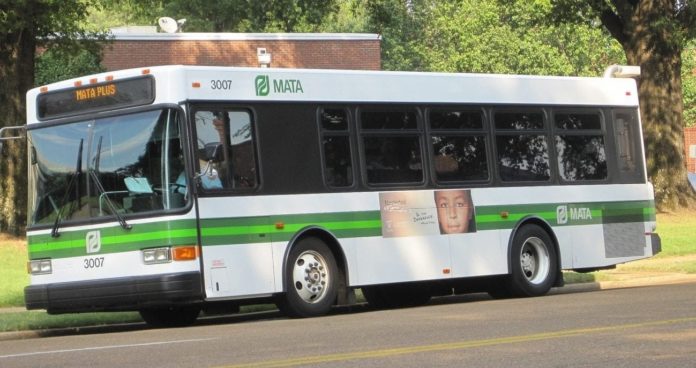Shelby County Mayor Lee Harris believes that the county’s increasing poverty rate can be reduced by an investment in public transit. He spent Wednesday morning attempting to convince Shelby County Commission members to invest $10 million to support his proposal, Future for Transit.

During an executive committee meeting, the mayor laid out his plan, highlighting the benefits it would have on the county, specifically on poverty.
“We have a poverty rate that is more than it was last year,” Harris told the commission. “We have 25,000 people who live in poverty now, who did not live in poverty last year. We have to do something about it, and this means addressing our poverty rate.”
According to Harris’ plan, investing in transit would have an economic impact of more than $40 million by providing job seekers with more resources and access to jobs. Harris pointed to data from the Tennessee Department of Labor that said there are more than 16,000 available jobs in Shelby County.
“The jobs are available, but too many individuals in our community do not have transportation they can rely on to get to a job and keep a job,” Harris pointed out. “Our residents should be able to get to a job, keep a job, and be able to get home from that job in time to have dinner with their family.”
To help highlight the correlation of the plan and its effect on poverty, Harris brought in University of Memphis professor Elena Delavega and MICAH’s Dr. Gregory Blumenthal.
The pair co-authored the “Memphis Poverty Report.” The comprehensive document showed that poverty rates increased by 15 percent within the past year.
“Memphis and Shelby County has to do more if we want to see a change in these rates,” Delavega said. “And how can we do this if people can’t keep their jobs due to lack of public transportation?”
The poverty report showed that the overall rate in the United States is 12.3 percent.
The state of Tennessee falls below that at 11.5 percent. However, Shelby County is above the national average at 21.7 percent. The city of Memphis is even higher at 27.8 percent.
Harris initially introduced the proposal in September, suggesting that the plan be funded with a $145 fee on residents’ third vehicles. Many members of the commission opposed the increased hike.
The mayor, who has admitted that the proposal was a ‘working document’ subject to feedback, has hosted town hall meetings in select communities to garner resident input. As a result, the plan has been tweaked a few times.
Initially, the vehicle fee would have applied to every vehicle past the second registered one. Harris changed that to a one-time, yearly rate of $145 for households with three or more cars. He also rewrote the plan to exclude alternative vehicles, such as motorcycles, antique cars, and boats.
However, not many details were rehashed during Wednesday’s meeting. Instead, Harris allowed Delavega to expound on the county’s poverty rate and how investing in transit is a step in the right direction.
“Memphis needs comprehensive and affordable public transportation for our residents,” she said.
Noticeably absent from the meeting was a representative from Memphis Area Transit Authority (MATA). Harris told the commission that the transportation company’s president Gary Rosenfeld, was out of town, but in full support of the plan.
“You’re taking a lot of heat for MATA and they didn’t send even one body here,” Chairman Mark Billingsley said before commending Harris. “I don’t think this community or county would ever be talking about this – public transit – without you.”
Wednesday’s presentation on the impact a $10 million investment in transit would have on equity is part two in the “Three E’s” series of presentations to the Shelby County Commission.
In November, Harris presented the benefits to the environment, making the point that investment would produce more than one million new rides, therefore reducing emissions by thousands of metric tons.
Next month, Harris will lead a discussion around the economic benefits of investing in transit. For instance, dedicated investment of at least $10 million is projected to have an economic impact of more than $40 million as a result of expanded job access.
The County Commission is expected to vote on the plan in February 2020.



